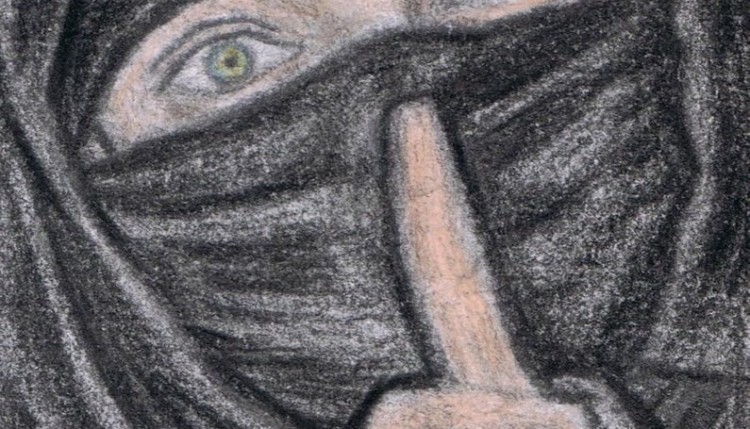
Think Before You Speak
Unfortunately, 9/11 resulted in a stigma in the United States against the Muslim community as terrorists. As displayed in the political cartoon at the end of this post, judgment against the Muslim population become a part of life in the United States. However, what portion of the Muslim community is actually militant? How has the stigma sustained itself in a country that has recently been home to numerous social movements? Kurzman analyzes the presence of terrorists in the Islamic community alongside Victor’s critique of the government’s creation of a moral panic in the United States.
According to Kurzman, “global Islamist terrorists have managed to recruit fewer than 1 in 15,000 Muslims over the past quarter-century and fewer than 1 in 100,000 Muslims since 9/11” (62). This low recruitment findings are due to Muslims’ general opposition to terrorist violence, the “soft” support for Islamist radicalism, competitions terrorist groups, “the combination of democratic politics and cultural conservatism is far more popular among Muslims than the revolutionaries’ anti-democratic violence”, and “anxiety over [the militant groups] unpopularity has divided the revolutionaries” (Kurzman 63). Despite how small the proportion of Islamic terrorists to the Muslim community is, discrimination against the community still exists. Overall, Kurzman believes the militants may cause harm, but there are few of them and the majority is incompetent (64).
The idea that all Muslims are terrorists is blatantly false. Jeffrey Victor believes “moral panics easily lead to government abuses of power” (11). The moral panic of terrorism has led politicians to trigger fear in order to gain votes. For example, in the reelection of George W. Bush, “79% [of voters who mentioned terrorism and national security] gave their votes to Bush” (Victor 10). Rather than providing a realistic idea of terrorism’s threat, leaders have used the fear to increase their given ability to handle the situation. This can be seen in the passing of the Patriot Act post 9/11. The moral panic provides “law enforcement officials [with the ability to] see themselves as fighting detestable evil at all costs,” when really the process results in discrimination against entirely innocent populations. In order to avoid unreasonable government action and certain stigmas, the promotion of unreasonable fear must be put to rest. If everyone, especially U.S. leaders, would take time to analyze terrorism’s actual threat before speaking on the issue, the moral panic may be diminished.
